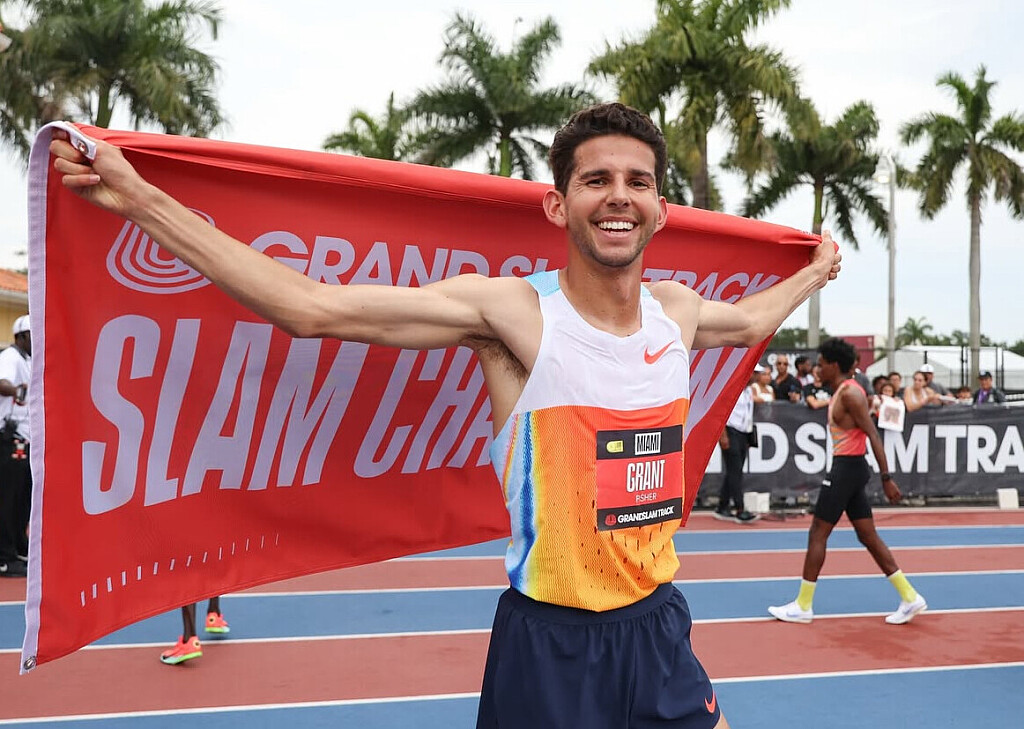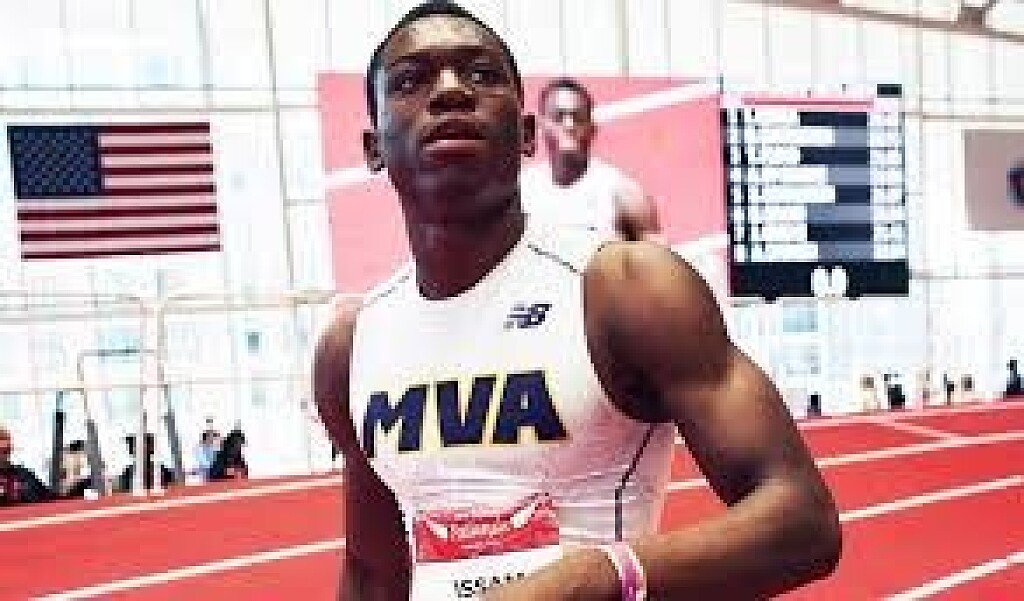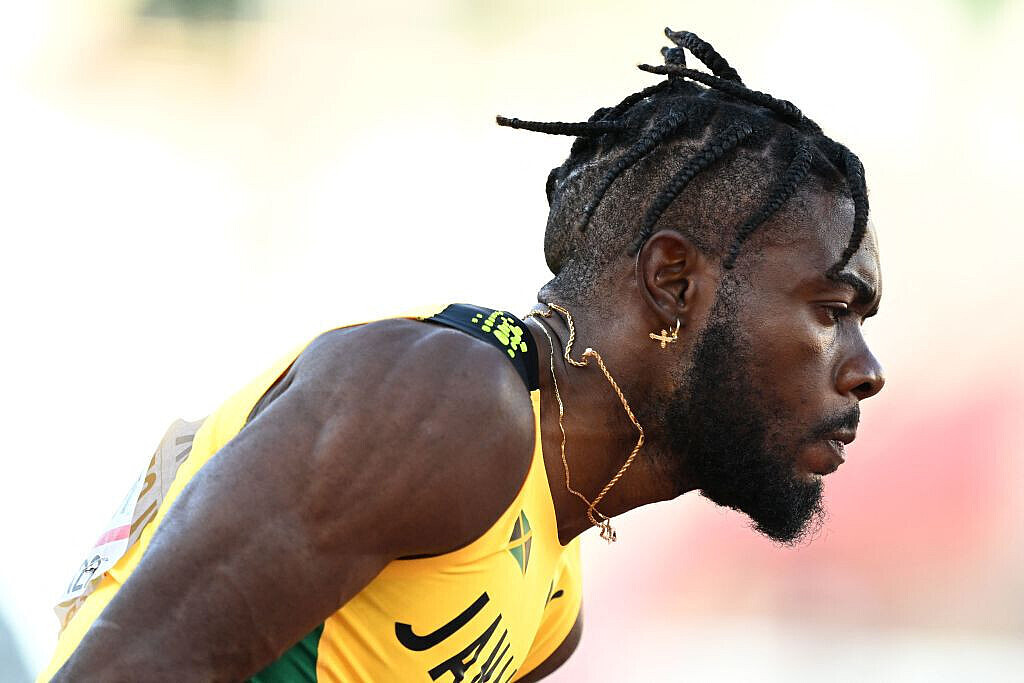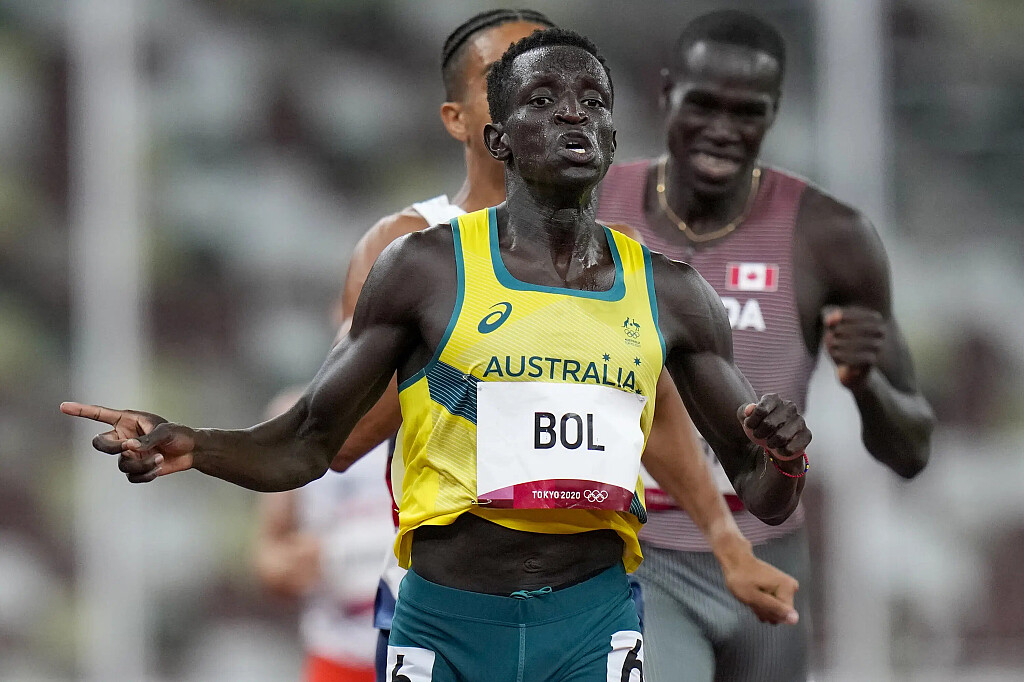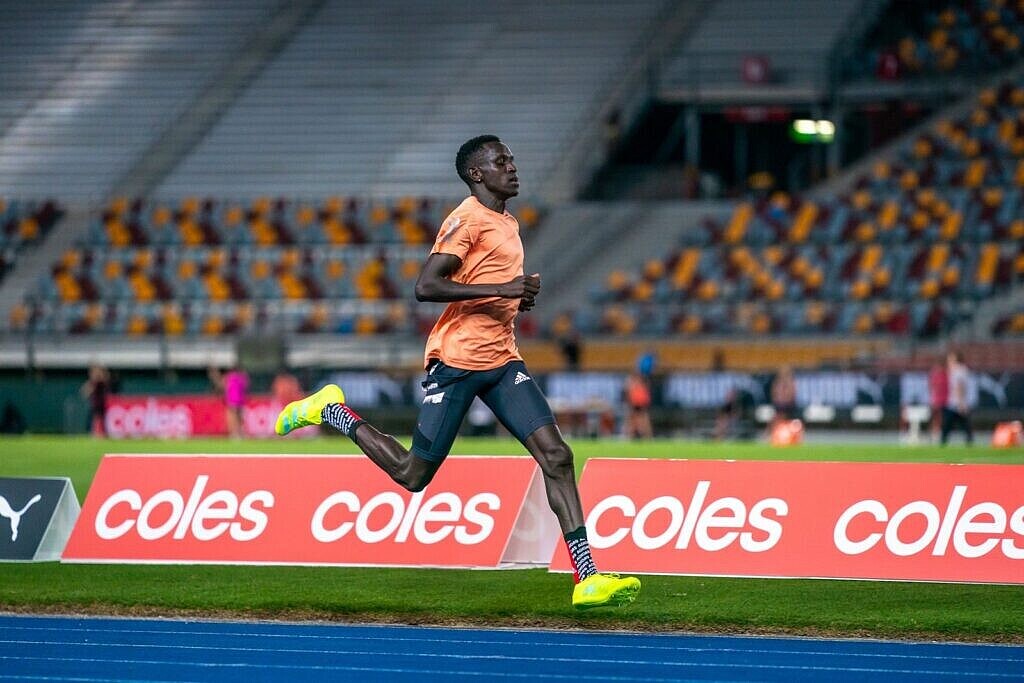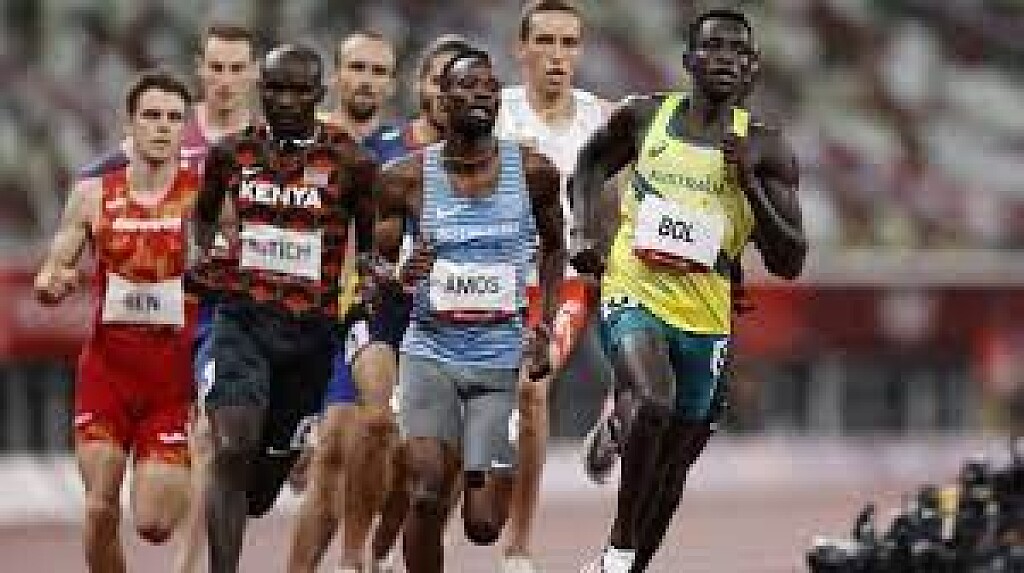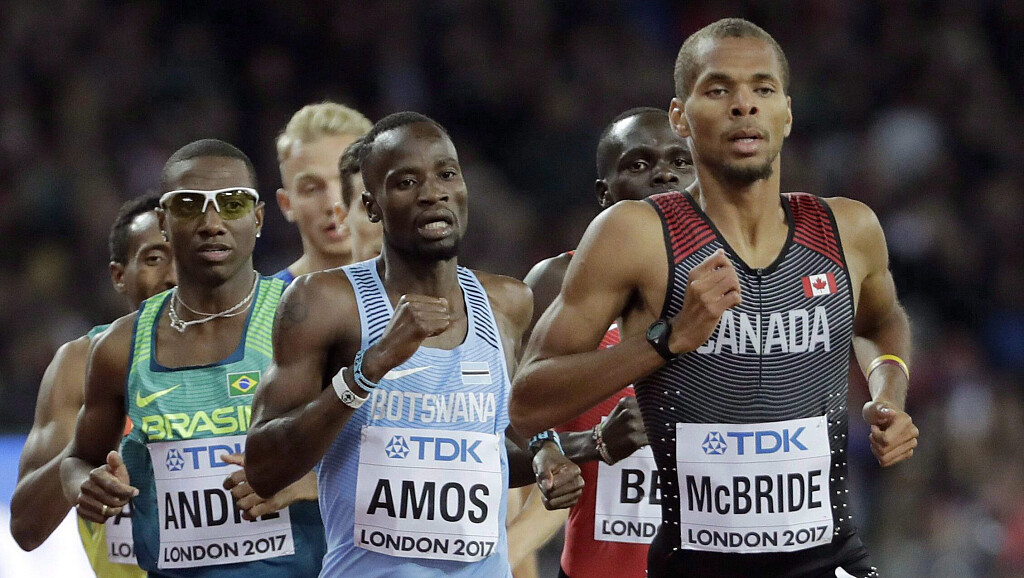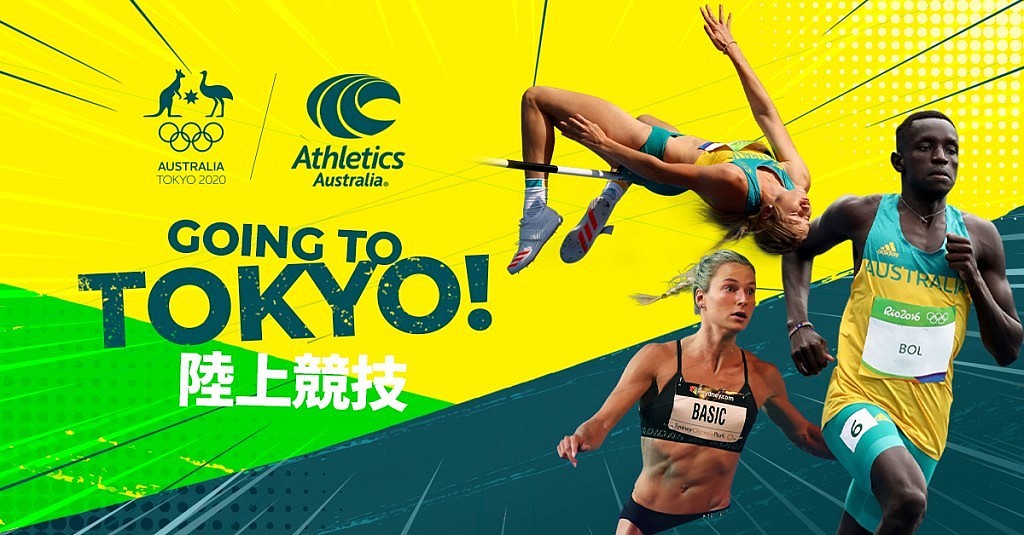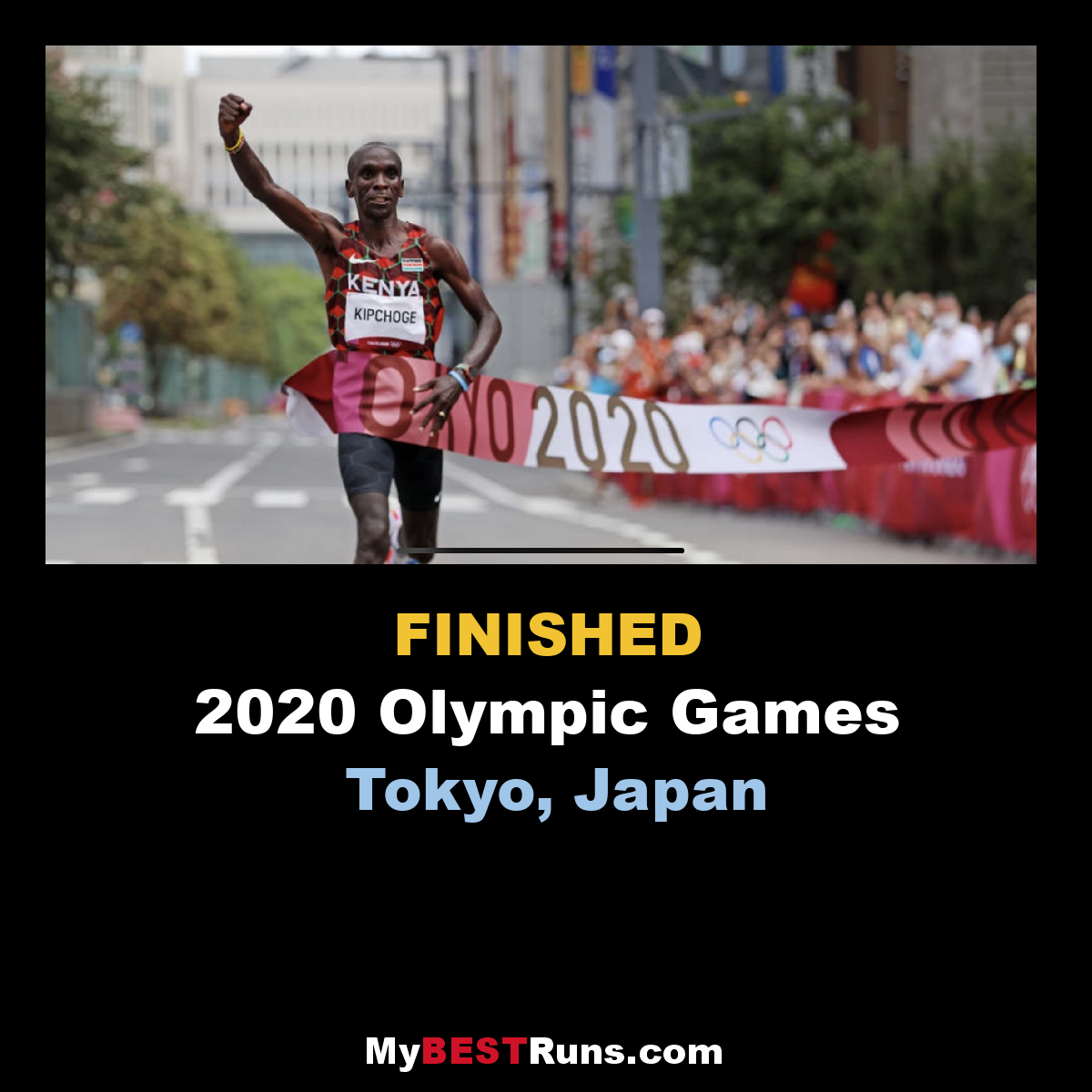Running News Daily
Running News Daily is edited by Bob Anderson. Send your news items to bob@mybestruns.com Advertising opportunities available. Train the Kenyan Way at KATA Kenya and Portugal owned and operated by Bob Anderson. Be sure to catch our movie A Long Run the movie KATA Running Camps and KATA Potato Farms - 31 now open in Kenya! https://kata.ke/
Index to Daily Posts · Sign Up For Updates · Run The World Feed
Articles tagged #Peter Bol
Today's Running News
Day 3 Recap: Grand Slam Track Miami Delivers High Drama and Big Payouts
The final day of the Grand Slam Track meet in Miami concluded with thrilling performances and significant prize money awarded to top athletes. Held at the Ansin Sports Complex from May 2–4, this event marked the second stop in the inaugural Grand Slam Track series, founded by Olympic legend Michael Johnson.
Top Performers and Prize Money Winners
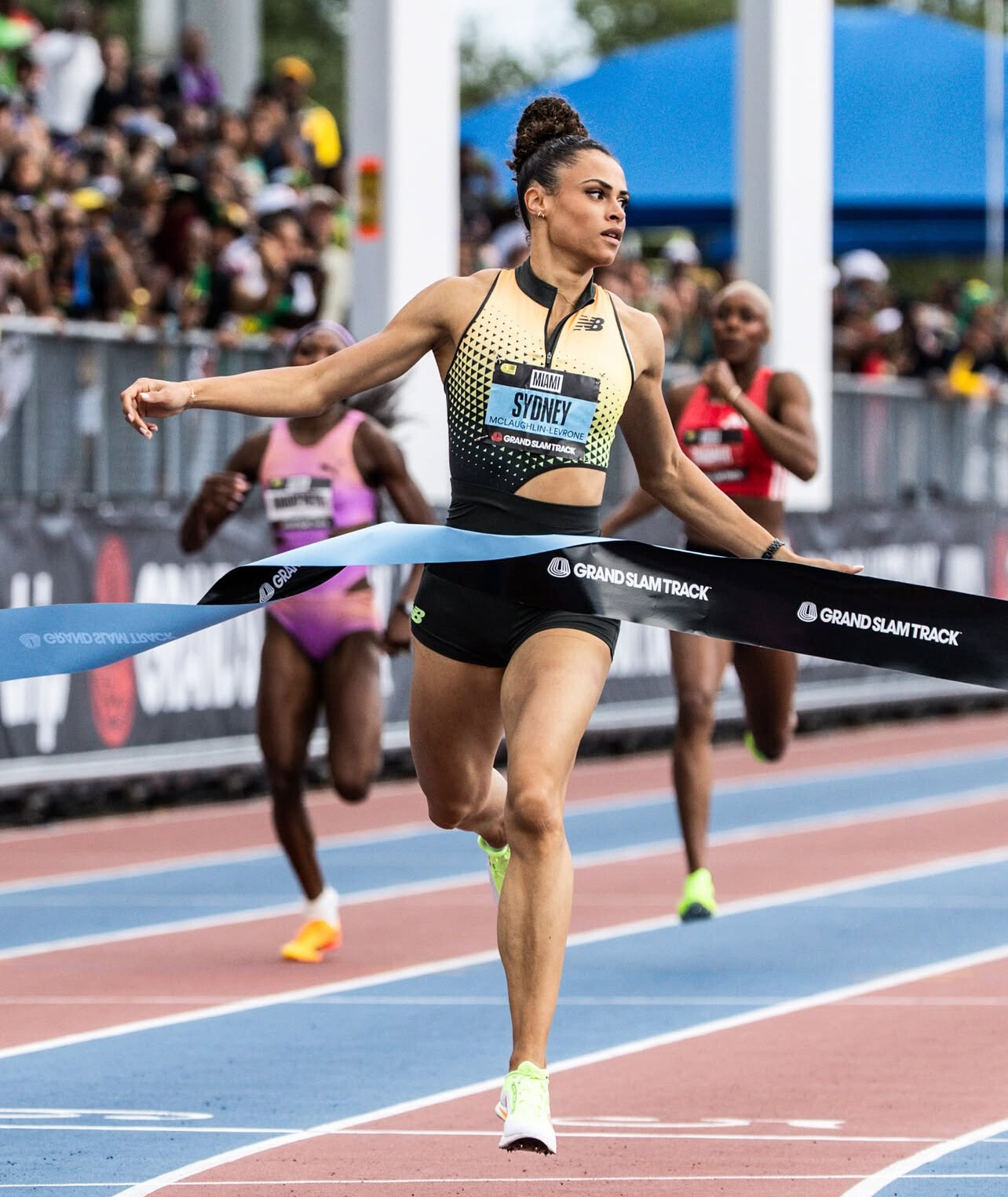
The Grand Slam Track series features six event groups, each comprising two disciplines. Athletes accumulate points across both events, with the highest total determining the group champion. Winners receive $100,000, with payouts extending to the eighth place at $10,000.
Men’s Short Sprints (100m & 200m):
Kenny Bednarek secured victories in both the 100m (9.79 seconds, wind-aided) and 200m (19.84 seconds), earning the maximum 24 points and the $100,000 prize.

Women’s Long Hurdles (400m Hurdles & 400m):
Sydney McLaughlin-Levrone dominated her events, including a 400m win in 49.69 seconds, clinching her second consecutive Grand Slam title and $100,000.
Men’s Short Distance (800m & 1500m):
Josh Kerr won the 1500m in 3:34.51 and placed fifth in the 800m with a personal best of 1:45.01, accumulating 16 points to secure the group title and $100,000.
Women’s Short Sprints (100m & 200m):
Melissa Jefferson-Wooden became the first athlete to win back-to-back Grand Slam titles, winning the 100m in 10.75 seconds and placing third in the 200m, totaling 18 points and earning $100,000.
Men’s Long Distance (3000m & 5000m):
Grant Fisher won the 5000m, securing enough points to top the long-distance group and take home $100,000.
“I need to be ready to win in a lot of different scenarios,” said Grant Fisher after his dominant performance in the men’s 5000m at the Grand Slam Track meet in Miami. The U.S. star closed with a blistering 3:57.58 over the final 1600 meters, showcasing both tactical patience and lethal finishing speed en route to his 13:40.32 victory over 12.5 laps.
Women’s Long Distance (3000m & 5000m):
Agnes Jebet Ngetich won the 5000m with a time of 14:25.80, setting a course record and claiming the group title and $100,000.
Prize Money Structure
The Grand Slam Track series offers substantial financial incentives:
First-place finishers in each event group receive $100,000. Second place earns $50,000, third place takes home $30,000, and fourth place is awarded $25,000. Fifth through eighth places receive $20,000, $15,000, $12,500, and $10,000 respectively. This structure ensures that all finalists receive compensation, promoting competitive participation across the board.
Emerging Stars and Notable Performances
Several athletes delivered standout performances:
• Andrew Coscoran: The Irish runner won the 3000m in 8:17.56, marking the biggest victory of his career.
• Masai Russell: Set a new American record in the 100m hurdles with a time of 12.17 seconds, the second-fastest in history.
• Peter Bol: The Australian middle-distance runner earned $30,000 in his Grand Slam Track debut, showcasing his potential in the league.
Looking Ahead
With two events completed, the Grand Slam Track series moves to Philadelphia and Los Angeles. Athletes will continue to compete for significant prize money and the coveted “Racer of the Year” title, awarded to the top male and female athletes based on cumulative points across all four Slams.
by Boris Baron
Login to leave a comment
The Issam Asinga Case: Evil Coverup or Did The Fastest High School Sprinter Ever Test Positive For Drugs After Eating Gatorade Gummies?
Six weeks ago, 19-year-old Issam Asinga, the fastest teen sprinter in world history, was handed a four-year ban from the sport of track & field after testing positive for the banned substance GW1516. Asinga’s positive sample came in July 2023, just days before he ran 9.89 seconds to become, at the time, the youngest person in history to break 10 seconds for 100 meters. Asinga, who had been provisionally suspended since August 2023 by the Athletics Integrity Unit (AIU), appealed the decision to the AIU’s disciplinary tribunal, who ruled against him and upheld the four-year suspension on May 27.
Until then, the details of Asinga’s case had been kept secret. Now they are public, and potentially explosive.
Asinga, who maintains his innocence, blamed the positive test on contaminated Gatorade gummies he received at the company’s National Athlete of the Year ceremony in Los Angeles last summer, where he was honored as high school track & field athlete of the year. Asinga has already appealed his case to the Court of Arbitration for Sport, where it is expected to be heard later this year. He is also mulling whether to launch a civil suit against Gatorade because the gummies in question falsely carried an NSF Certified for Sport label, which signified that the product did not contain any prohibited substances. NSF has made a public statement saying the gummies from Asinga’s lot number were not NSF Certified and the NSF Certified mark was being used without authorization.
“They distributed a supplement that wasn’t NSF Certified for Sport that had a banned substance in it,” said Asinga’s lawyer Paul Greene. “That’s violation of product liability law, negligence, implied warranty, New York state consumer protection law. I mean, it’s bad. He had the possibility of getting endorsement and NIL deals that were going to be in the millions of dollars and he lost all that as a result of this. He also lost out on the chance to compete in the World Championships and the Olympics.”
The AIU, however, was not satisfied that the gummies were the source of Asinga’s positive test, and its disciplinary tribunal agreed.
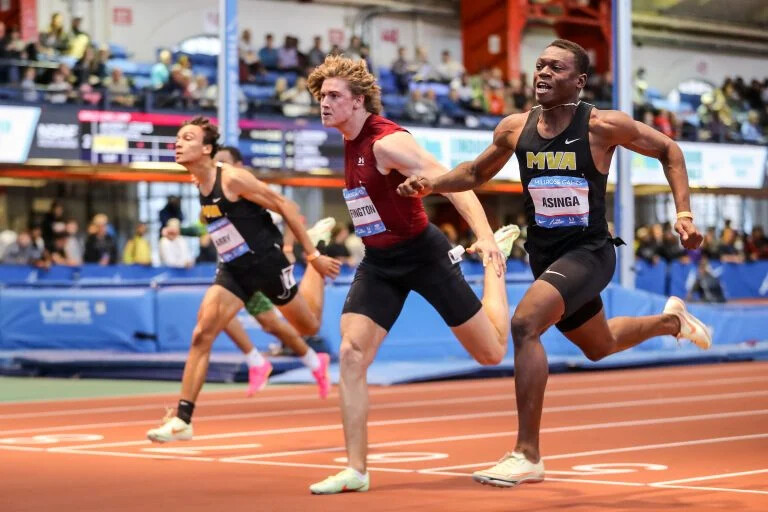
Incredible 2023 high school season
Asinga’s is one of the highest-profile doping cases in recent years. After running personal bests of 10.44 seconds in the 100m and 20.76 in the 200m as a junior in 2022 at Principia High School in Missouri, Asinga transferred to Montverde Academy in Florida for his senior year, where he improved enormously and produced one of the greatest seasons ever by a high school sprinter.
During the 2023 indoor season, Asinga won national high school titles in the 60m (6.59) and 200m (20.48) at New Balance Nationals, tying the national record in the former event (he ran 6.57 in the semis) and breaking the national record in the latter. Outdoors, Asinga ran a wind-aided 9.83 in the 100m to defeat Noah Lyles, who would go on to win the world title in that event four months later. Asinga, who was born in the US but represents Suriname internationally, then ran 19.97 in the 200m in April (#2 all-time among US high schoolers) and 9.89 in July to win the South American 100m title in Sao Paulo, Brazil. The latter time ranked Asinga in a tie for ninth in the world in 2023. It was also a world U20 record and was the first time a US high school athlete had broken the fabled 10-second barrier.
Now that world U20 record has been stripped as Asinga finds him at the center of controversy. The 43-page decision in his case released by the AIU presents only two possible versions of events.
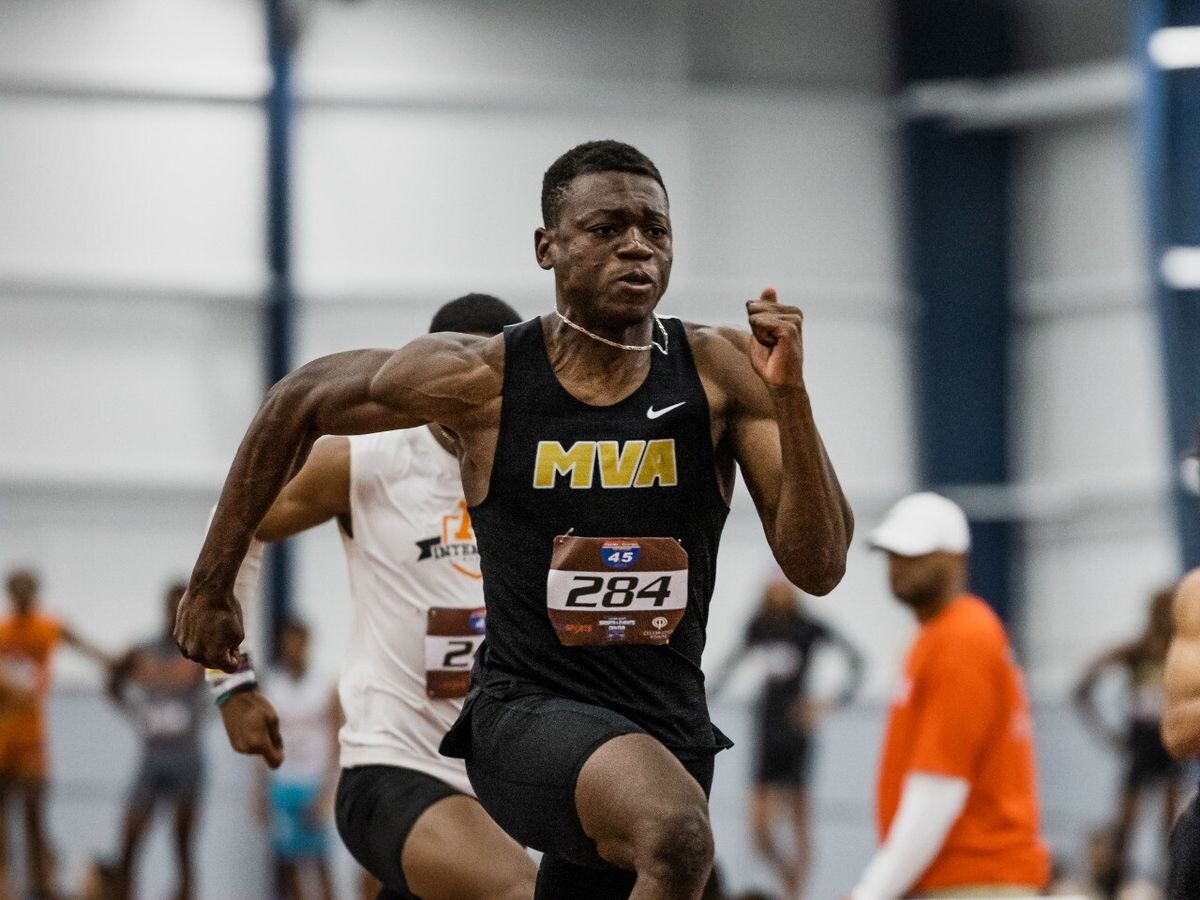
Option A: An 18-year-old was caught doping barely a month after being added to the international testing pool. Then he or someone in his camp tried to cover up his doping by manipulating evidence and defaming Gatorade, one of the world’s largest sports nutrition companies.
Option B: One of the greatest sprint talents in history was unjustly banned after consuming a tainted supplement given to him by one of the most famous brands in sports.
Neither picture is particularly rosy for the sport of track & field, but one of them must be true. After reviewing the evidence, the AIU and its disciplinary tribunal is clear which version it believes: Option A. As a result, Asinga is banned from competition until 2027 barring a successful appeal to CAS.
Background: Asinga enters the testing pool
Most high school track athletes, even elite ones, are rarely drug-tested. But by the spring of 2023, Asinga was running so fast it was becoming clear he could be a factor at that summer’s World Championships in Budapest. He was added to the World Athletics Testing Pool on June 1.
Asinga was tested on June 11 and returned a negative result. He was tested again out-of-competition on July 18 (in his training base of Clermont, Fla.) and again at the South American championships on July 28. The July 18 sample tested positive for GW1516, a banned substance that modifies how the body metabolizes fat and has been found to cause cancer. Specifically, Asinga’s sample tested positive for low levels of two metabolites of GW1516 — a metabolite is a substance produced when the body breaks down a specific drug. In this case, Asinga’s urine contained the GW1516 sulfone metabolite (at a concentration of 0.2 nanograms per milliliter in both his A sample and B sample) and the GW1516 sulfoxide metabolite (at a concentration of 0.5 ng/mL in his A sample and 0.4 ng/mL in his B sample).
On August 9, Asinga was informed of his positive test and provisionally suspended from competition. Shortly after, in an effort to prove his innocence, he began sending his supplements to be tested for contamination at the Sports Medicine Research and Testing Laboratory (SMRTL), a WADA-accredited lab in Salt Lake City. The first supplement Asinga sent, melatonin gummies, tested negative. Asinga then sent a larger set of supplements, including Airborne and Skratch Lab Hydration packets as well as Gatorade Immune Support Gummies and Gatorade Recovery Gummies, two new products he had received at the Gatorade National Athlete of the Year ceremony on July 10.
All of the supplements tested negative for GW1516 except the Gatorade Recovery Gummies. In December, SMRTL informed the AIU that of the five gummies tested, four were positive for GW1516. That much, the parties agree on. From there, the narratives diverge.
Contaminated during manufacturing or as part of a coverup?
Asinga said he began taking the Recovery Gummies shortly after the ceremony on July 10 — initially two per day, then less consistently before traveling to Brazil for the South American championships on July 25. He said he did not take any gummies to Brazil. Asinga declared the gummies as a supplement on the doping control form for his July 18 test and said he had no concerns about the gummies because the container carried the NSF Certified for Sport label.
Greene said the AIU was initially reluctant to share the results of the SMRTL analysis with Asinga because it viewed the test results of products from an opened container as unreliable. (LetsRun.com reached out to the AIU for comment on June 2 but had not received an answer as of publication).
“Normally, SMRTL’s process and the AIU’s process is if there is a preliminary finding in a supplement, they don’t initially just tell the athlete straight away,” Greene said. “They try to go and find their own sealed version and test that too and then go to confirmation testing.”
But neither SMRTL nor the AIU could find a sealed version from the same lot number as Asinga’s gummies. So, after several weeks, the AIU relented and shared the news that the Gatorade Recovery Gummies had tested positive for GW1516. Asinga said he felt he was on his way to clearing his name.
“I was like okay, boom,” Asinga told LetsRun.com. “When I got that message, I was like, okay, finally we’re going to move forward.”
But the AIU did not agree with Asinga’s assessment and hinted at something far more sinister. In the disciplinary tribunal hearing, which took place over Zoom on April 30, Martial Saugy, former director of the WADA-accredited lab in Lausanne, Switzerland, served as an expert witness for the AIU and noted that the exterior of the gummies contained much higher concentrations of GW1516 than the interior of the gummies.
“I cannot see how these results would be consistent with a contamination during the manufacture of the gummies,” Saugy said. “These results point to an adulteration of the gummies at a later stage.”
Another key point: Asinga had opened both containers of gummies before sending them to SMRTL. And in SMRTL’s analysis, it noted a “large discrepancy” between the concentration levels of GW1516 between the containers. The two gummies tested from the first container each featured a concentration of at least 610 ng of GW1516 per gummy. Meanwhile of the three gummies tested from the second container, the highest concentration of GW1516 was 1.5 ng per gummy, and one of the gummies did not test positive for GW1516 at all.
This fact left open the possibility for manipulation; to be satisfied of his innocence, the AIU demanded to see a positive test from a separate, sealed container of gummies from the same lot number as Asinga’s.
Separate lot numbers bring questions
This is where things get complicated. The lot number printed on Asinga’s gummy containers was 22092117150234. NSF has issued a statement saying this lot number was not NSF Certified and the NSF Certified mark was being used without authorization. As part of the case, the Lausanne lab did test a sealed container of Gatorade Recovery Gummies, which tested negative. But that container was from a different lot number — lot 22092117150213, which was one of the lots that did receive NSF certification.
The gummies were not manufactured directly by Gatorade, but rather by a company contracted by Gatorade called Better Nutritionals, who manufactured the gummies for Gatorade at its plant in Gardena, Calif. As part of its case, the AIU called a former Better Nutritionals employee as a witness who testified that, for all intents and purposes, lots 22092117150234 and 22092117150213 were identical. This witness, referred to only as Witness B in the decision, made the following argument:
Witness B said lots 22092117150213 and 22092117150234 were part of the same batch of 20,000 jars’ worth of gummies cooked on the same day. That batch of 20,000 jars was separated into two lots: 7,500 jars (lot 22092117150213) would enter the marketplace immediately without the NSF Certified for Sport logo, of which a few would be sent to NSF for testing. The remaining 12,500 jars (aka lot 22092117150234, which included the gummies Asinga received) would be held back and given the NSF Certified logo predicated on NSF testing on lot 22092117150213.
Before NSF testing had been completed, lot 22092117150213 entered the marketplace without the NSF Certified logo.
By October 4, the 12,500 jars from lot 22092117150234 had been labeled NSF Certified. On October 18, Better Nutritionals received confirmation that lot 22092117150213 had been granted NSF certification, which was confirmed on the NSF website.
As proof that the two lots were part of the same batch, Witness B noted that the first six digits of the lot number, which refer to the cook date, were identical: 220921, or September 21, 2022. Furthermore, Witness B said the seventh digit refers to the specific production line used at the factory. Again, both were the same — 1, referring to the first production line.
Witness B said it would not be feasible to produce two separate batches on the same day, noting that a batch with 20,000 jars’ worth of gummies would take roughly 19 hours to complete with a minimum of eight hours to clean the production line between batches.
Witness B and another witness from Better Nutritionals (Witness A) noted there was no logical source for contamination as GW1516 is not an ingredient of any of the other products manufactured in the Gardena plant.
To simplify: one lot of 7,500 jars (lot 22092117150213) was NSF Certified but did not bear the NSF label. Another lot of 12,500 jars (lot 22092117150234) was not NSF Certified but did bear the NSF label, and that is the lot Asinga’s gummies came from. Better Nutritionals claims the two lots were cooked as one large batch of 20,000 jars, and as a result, the fact that one lot was NSF Certified means that both lots should be considered NSF Certified.
To represent him in his appeal, Asinga hired Greene, the sports lawyer who previously represented Jarrion Lawson, Shelby Houlihan, Peter Bol, and many others in their high-profile doping cases. Greene said he does not buy Witness B’s argument.
“There’s no such thing as two lots of the same,” Greene told LetsRun.com. “They’re not the same. Every lot is separate according to NSF and according to FDA rules.”
After it was informed of Asinga’s positive test by the AIU, the NSF conducted its own investigation and issued the following public notice on June 4:
Gatorade® Immune Support Gummies (citrus; lot number 22091937150233) and Gatorade® Recovery Gummies (cherry; lot number 22092117150234), manufactured by Better Nutritionals LLC, have been found in the public domain bearing the NSF Certified for Sport® Mark without authorization. These specific lot numbers, for these products, have not been tested, evaluated or certified by NSF and are not authorized to use the NSF certification mark or make any claims of NSF certification.
Furthermore, Greene noted that Witness B was terminated for cause by Better Nutritionals in December 2022 — the same month Better Nutritionals filed for bankruptcy.
Asinga asked a representative at Gatorade for a sealed container from lot 22092117150234 — the lot from which Assinga’s gummies came — but was informed that Gatorade Recovery Gummies had been discontinued for “manufacturing reasons” (Witness A said the gummies were discontinued because Better Nutritionals went bankrupt). The AIU and SMRTL also requested sealed containers from the same lot, yet Gatorade/Better Nutritionals only made containers from lot 22092117150213 available. Greene says that makes no sense. If the two lots are identical, Greene argues, why not send one from the same lot number as Asinga’s?
“Somehow they had several sealed versions from the 7,500 lot but nothing from the 12,500 lot,” Greene said. “I find it hard to believe they don’t have anything out there and it was an intentional choice to withhold it. It had to be. Why else wouldn’t they give us one from both? What’s the difference?”
If Gatorade has no sealed version, Greene says, they are in violation of FDA regulations, which state that supplement manufacturers must hold reserve samples from each lot they produce.
by Jonathan Gault
Login to leave a comment
World championship silver medalist suspended for evading doping test
On Monday morning, the Athletics Integrity Unit (AIU) announced the provisional suspension of Jamaican 400m runner and 2022 world championship silver medalist Christopher Taylor for evading and refusing to submit to a sample collection, stemming from an incident in November 2022.
Taylor, an Olympic and World Championships finalist in the men’s 400m, may face a four-year ban if he is found guilty; he has not competed since Aug. 30, 2022. At the 2022 World Championships, he anchored the Jamaican 4x400m team to a silver medal.
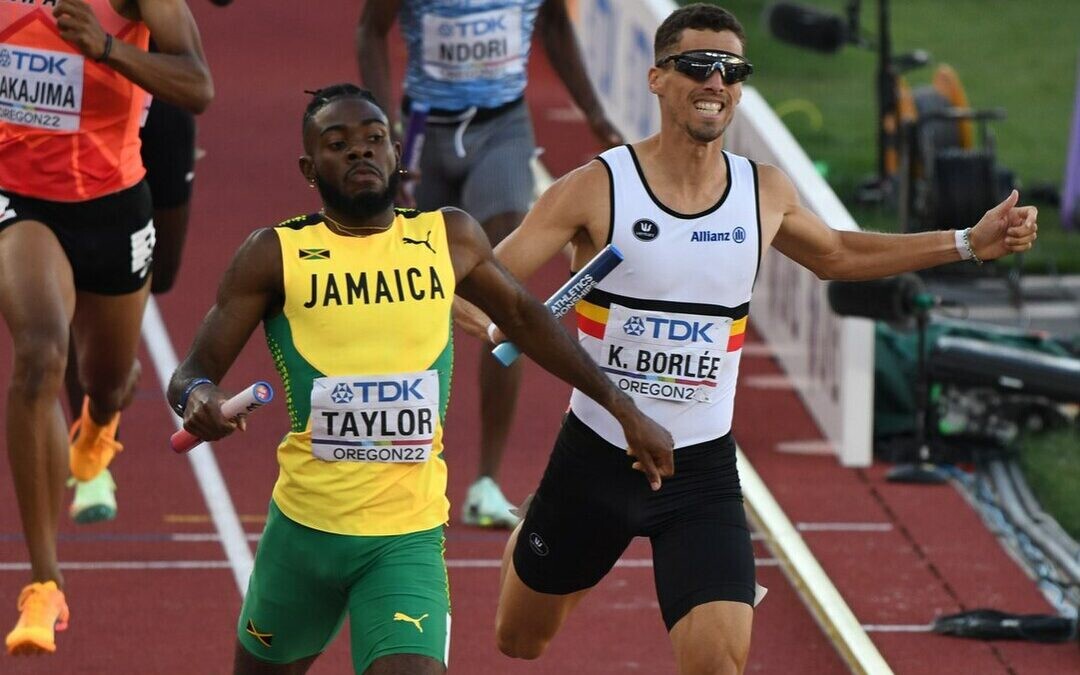
The suspension
According to the Jamaica Observer, Taylor was contacted in November by anti-doping officials, who had turned up to conduct a test at his home in Kingston, Jamaica (the location he had indicated on his whereabouts form). When the officials arrived, Taylor was at the Norman Manley International Airport in Kingston, waiting to catch a flight to the U.S.
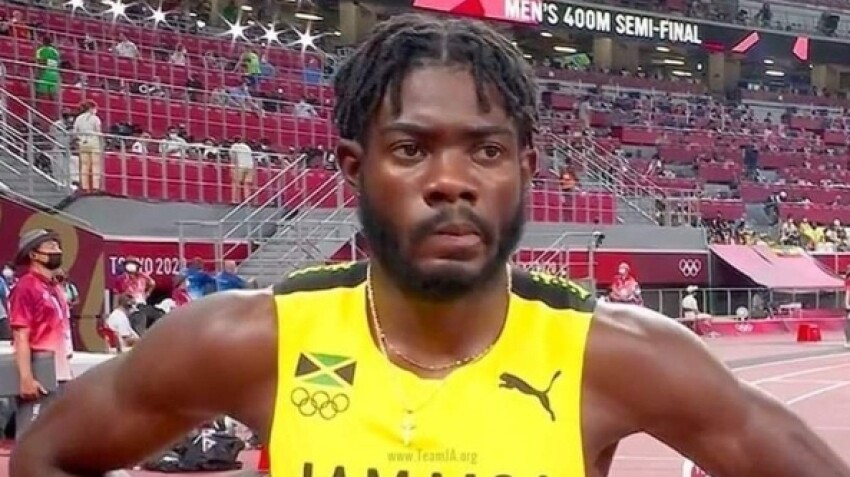
If an athlete is not where they say they are when anti-doping officials show up, it counts as a missed test. Typically, a first or second offence does not carry any penalty, but if an athlete misses three tests during a 12-month period, that constitutes a whereabouts violation, resulting in an automatic period of ineligibility.
However, in Taylor’s case, he is believed to have violated WADA Anti-Doping Code Article 2.3, which speaks to purposely “evading, refusing or failing to submit to sample collection,” resulting in a mandatory two- or four-year ban. If Taylor can establish that the rule violation was not intentional, the period of ineligibility may be reduced.
Taylor’s case
Sports lawyer Paul Greene, who has previously represented high-profile athletes, Shelby Houlihan and Peter Bol, has been representing Taylor. In the interview with the Jamaica Observer, Greene says that upon discovering that Taylor was at the airport, the doping control officer tracked him down, but Taylor refused to test because he didn’t want to miss his flight. Taylor assumed this would simply count as one of an allowable three whereabouts violations, and Greene claims Taylor would have consented to the test if he’d known his behaviour would be interpreted as an attempt to avoid being tested.
Before being notified of the suspension, Greene admitted there are some grey areas in the interpretation of rules differentiating a whereabouts failure from an attempt to evade testing, and that Taylor could either avoid any penalty or be slapped with a multi-year ban.
by Running Magazine
Login to leave a comment
Peter Bol’s positive doping test revealed as “blunder” by Sports Integrity Australia
After two long months, the Peter Bol EPO-doping saga has concluded. Two independent laboratories have cleared the Australian 800m runner of using the banned substance, noting a “catastrophic blunder” in testing from Sports Integrity Australia (SIA).
In January, the 29-year-old faced a four-year suspension after he returned a positive result for the banned substance erythropoietin (EPO) from a urine sample taken in October. Upon further investigation, according to Sports Integrity Australia, neither of Bol’s A nor B samples showed the presence of EPO in his urine: “Only naturally occurring, endogenous erythropoietin was present during both tests.”
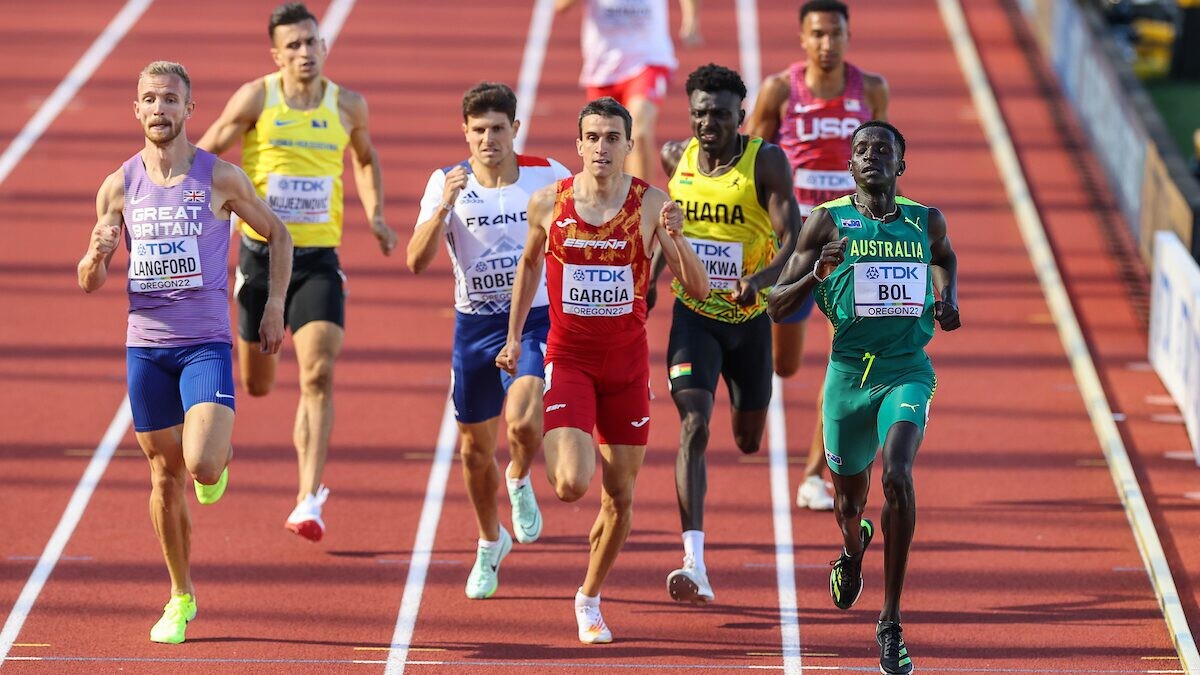
Bol said in an interview with Australia’s 9News that the entire process from the SIA was nothing but unfair to him. “To accuse me of doping without scientific proof… it’s tough, but deep down, I knew I was innocent,” said Bol.
He became a household name in Australia at the 2020 Tokyo Olympics after breaking two national records in qualifying to reach the men’s 800m final, where he finished fourth. At the 2022 Commonwealth Games in Birmingham, U.K., he won silver in the 800m behind Kenya’s Wyclife Kinyamal.
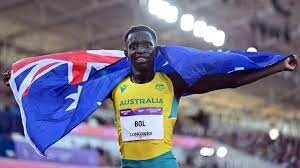
Pleading innocence
Bol hired a lawyer and throughout the process, stressed his innocence on social media, saying he would do whatever was necessary to clear his name. “I told everyone that I was innocent and asked everyone in Australia to believe me and let the process play out,” Bol wrote on Twitter.
Bol voluntarily handed over his laptop, iPad and phone to the SIA to help prove his innocence and paid $1,200 to have his B-sample tested.
Subjective testing
During the investigation process, a group of Norwegian scientists raised their doubts about Peter Bol’s positive A-sample, saying the testing for EPO by the World Anti-Doping Agency remains subjective, especially in cases such as Bol’s, which delivered a “borderline” positive result.
According to the Sydney Herald, his legal team sent a letter to SIA demanding an end to the investigation.
The letter includes two independent expert analyses of Bol’s sample from October last year “never showed the presence of any synthetic EPO” and that “inexperience and incompetence at the Australian Sports Drug Testing Laboratory (ASDTL) led to an incorrect determination” of his positive A-sample.
Last month, the SIA lifted Bol’s suspension, allowing him to return to training after the B-sample tested by the World Anti-Doping Authority (WADA) returned an atypical finding.
Bol said he does not intend to sue SIA for damages, although his legal costs are around $50,000.
“I want SIA to see this situation as an opportunity to improve,” he said to Sydney Herald. “Not me trying to fight them. We’ve been transparent the whole time. They should be the same. What my family has gone through should never happen, but it did happen, and we want people to be held accountable.”
by Marley Dickinson
Login to leave a comment
Peter Bol’s doping suspension lifted after B-sample does not match
The 800m Olympic finalist has been exonerated after results show an atypical finding between the two samples.
On Monday evening, Commonwealth Games 800m medallist Peter Bol’s provisional suspension for doping was lifted after his B-sample did not match his A-sample, meaning he can return to competition immediately.
Last month, the Australian 800m Olympic finalist made headlines as he returned a positive result for the banned substance erythropoietin (EPO) from a urine sample taken in October.
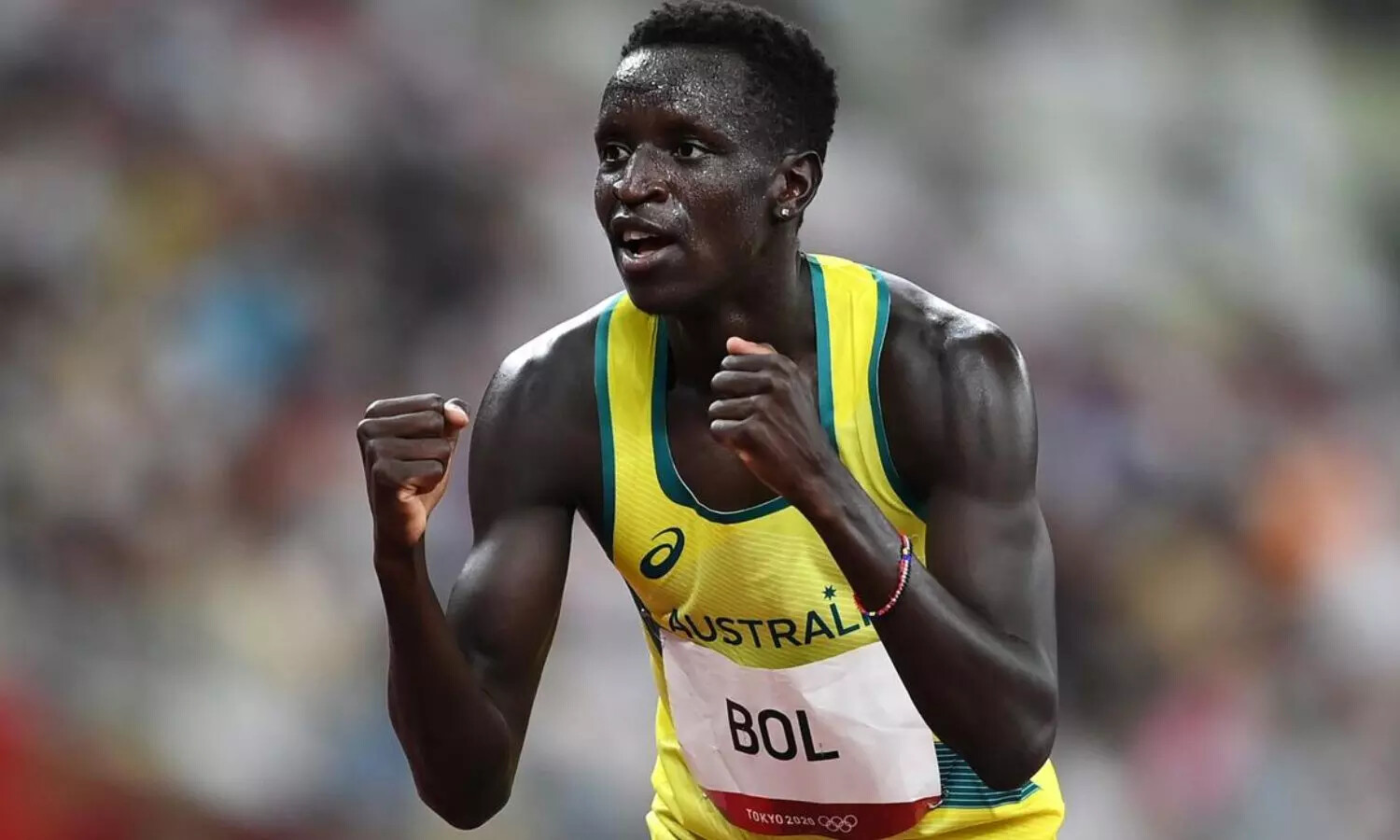
Throughout the process, Bol stressed his innocence and said he would do whatever was necessary to clear his name. “I told everyone that I was innocent and asked everyone in Australia to believe me and let the process play out,” Bol wrote on Twitter, as he faced the possibility of a four-year ban.
Bol voluntarily handed over his laptop, iPad and phone to Sport Integrity Australia to help prove his innocence and paid $1,200 just to have his B-sample tested.
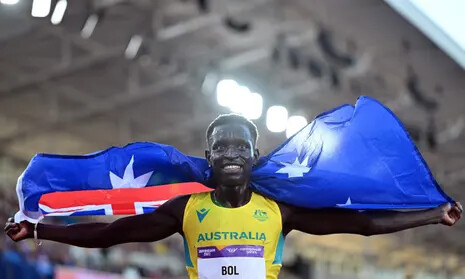
During the process, a group of Norwegian scientists raised their doubts about Peter Bol’s positive A-sample, saying the testing for EPO by the World Anti-Doping Agency remains subjective, especially in cases such as Bol’s, which delivered a “borderline” positive result.
“I was hopeful that the process would exonerate me,” Bol wrote. “I am relieved to report that it did.”
Sport Integrity Australia (SIA) said the suspension was lifted after Bol’s B-sample produced an “atypical finding,” which is not the same as a negative test result; it’s a report from a WADA-accredited laboratory that requires further investigation.
Despite Bol being allowed to return to training, Sports Integrity Australia (SIA) released a statement saying that Bol’s case remains open, and the SIA will now seek for a World Anti-Doping Agency (WADA) accredited laboratory to obtain a second opinion from an expert on the WADA EPO Working Group, which provides expert advice and analysis concerning the overall application of EPO testing.
by Running Magazine
Login to leave a comment
Australian 800m Commonwealth medalist tests positive for EPO
On Friday morning, Athletics Australia announced the provisional suspension of middle-distance runner Peter Bol, who won the silver medal in the men’s 800m at the 2022 Commonwealth Games in Birmingham, U.K.
Bol, who was fourth at the Tokyo Olympics in the men’s 800m, failed an out-of-competition urine test on Oct. 11. The 28-year-old tested positive for the banned drug erythropoietin, known as EPO.
In accordance with Athletics Australia’s anti-doping policy, Bol has been provisionally suspended, effective from Jan. 10.
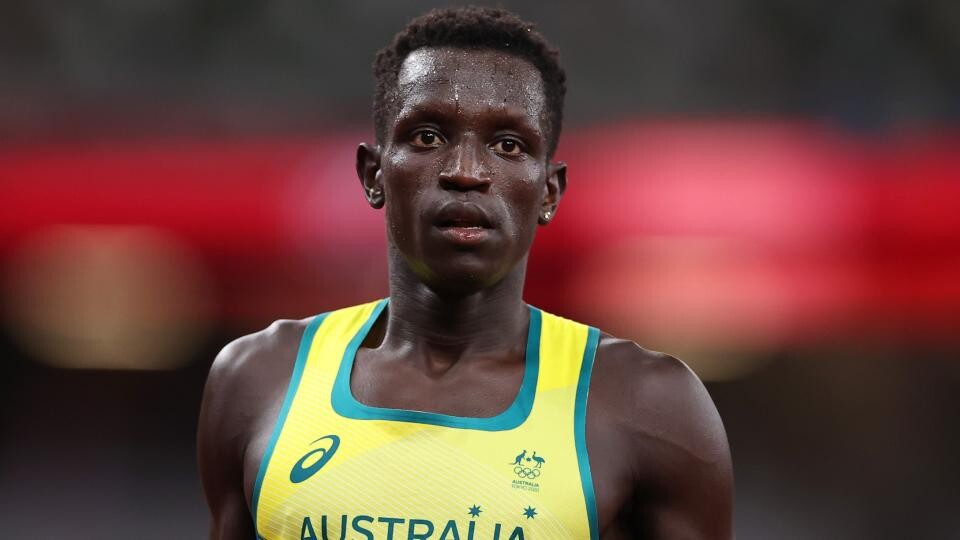
Bol went on Twitter to plead his innocence, denying that he’s ever purchased or used synthetic EPO, and has requested Sport Integrity Australia and Athletics Australia to take a look at the B sample from the October test.
Under the Australian National Anti-Doping Policy, the suspended athlete is entitled to have their B Sample analyzed. The results from the B sample will be known in February.
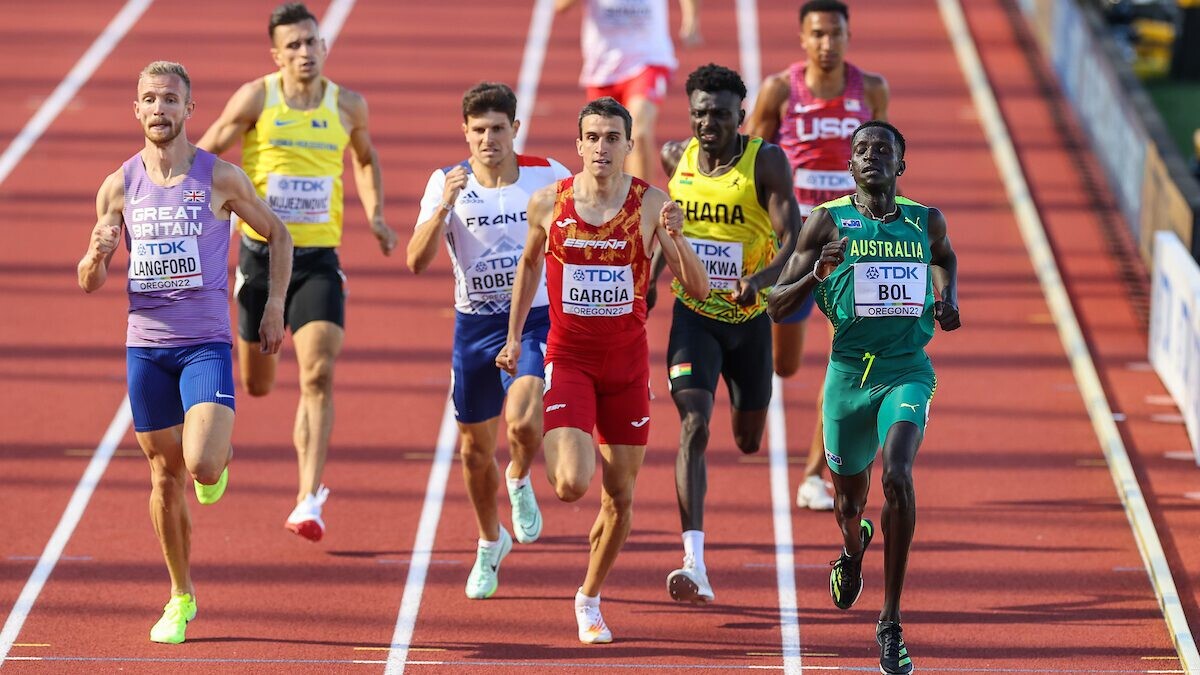
“I am innocent and have not taken this substance as I am accused,” Bol said on Twitter.
If his B sample is positive, Bol could face a four-year ban from athletics.
EPO has been on the World Anti-Doping Prohibited List since the 1990s; it is used to improve endurance performance or to speed up recovery.
Bol emigrated to Australia from Sudan with his family when he was eight. He is currently the Oceanic record holder and the fastest Australian ever over 800m, with a personal best of 1:44:00.
He currently trains in Melbourne with “Fast 8 Track Club” under middle-distance coach Justin Rinaldi.
by Running Magazine
Login to leave a comment
Now healthy, Canadian Brandon McBride sets running priorities for 2023, brightens holidays for others
Fully healed from a broken left foot, Brandon McBride will work to improve his mental strength on the track in 2023, with an eye on qualifying for a fourth consecutive World Athletics Championships next summer in Budapest.
The Canadian middle-distance runner will take a more experienced, strategic and smarter approach to races after falling hard to the track while jostling for position in his 800-meter heat on July 20 at the world championships in Eugene, Ore.
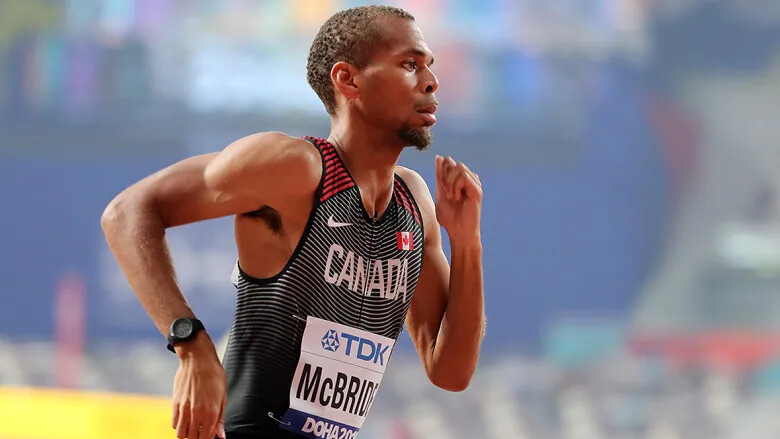
McBride, 28, and Navasky Anderson of Jamaica exchanged shoves near the turn off the backstretch. About 200 meters into the race, McBride said he was bumped during the cut-in and lost control but stayed on his feet before suddenly colliding with others.
The Windsor, Ont., native fell nearly five seconds off the pace and finished eighth, and last, in one minute 57.43 seconds.
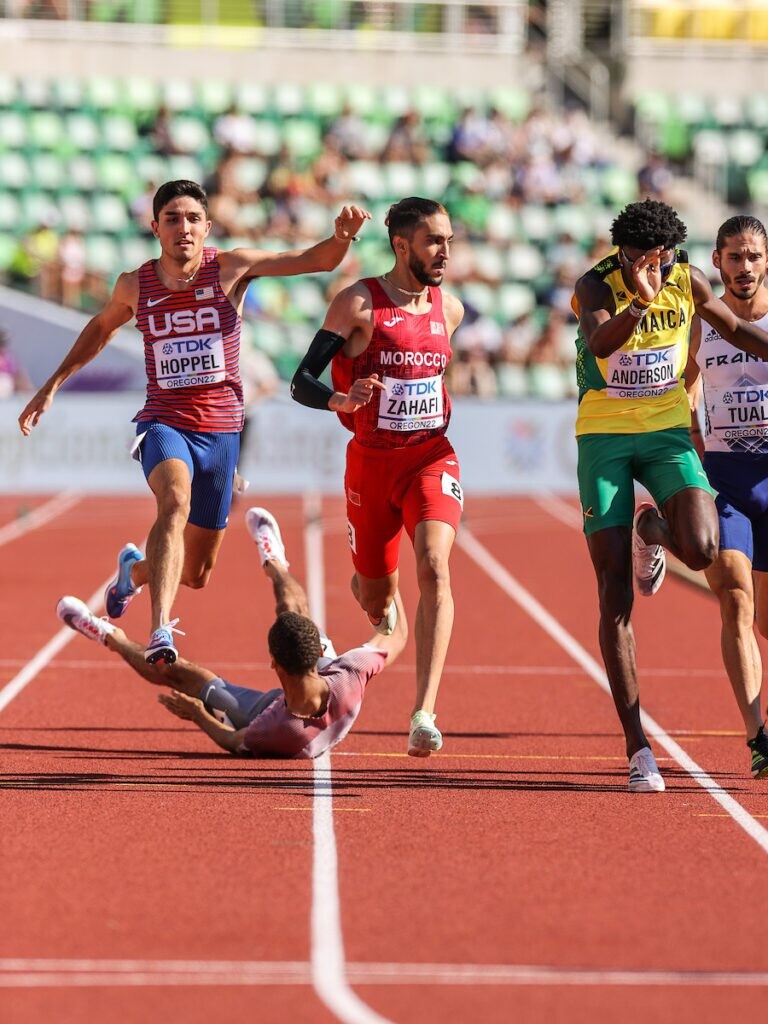
"You could say it was a freak accident [but] I take full responsibility," McBride, told CBC Sports over the phone from Victoria. "It could have been avoided if I had raced smarter. I need to approach races as a six-foot-five speed/power athlete [and] have to know I can't fit in certain spaces [between opposing runners]."
Going forward, McBride suggested he would sit at the back of the pack for the "first lap or so" and work his way up from 400 metres.
"That's something I [did] last year," said the two-time Olympian, "but maybe it's something I didn't have the confidence to do during world championships."
McBride encountered a similar situation in the first round at the 2019 worlds in Doha, Qatar, where he allowed Peter Bol of Australia to cut him off and almost tripped 150 to 200 metres from the start. At the time, McBride recalled, he had the utmost confidence in his endurance and speed. He recovered to win the heat while a tired Bol faded to fifth.
"In the future, I would love to have the confidence in myself to allow the individual to go ahead instead of jostling," he said. "You have to protect your space but remember the goal of the race is to finish."
In Eugene, McBride broke the fifth metatarsal, the long bone on the outside of the foot that connects to the small toe. The four-time Canadian champion worked with physiotherapist Mary Brannigan in Windsor during his rehabilitation and Dr. Brian Murer, a chiropractic specialist based in Indiana, who solved overall movement issues the runner was experiencing.
Four weeks into recovery, McBride could walk without issue and returned to his regular training program at the beginning of October.
"Rehab was straightforward, strengthening the muscles and tendons near the bone," said McBride, who ran a Canadian-record time of 1:43.20 in 2018. "[The broken bone] was the most painful experience I've ever had. I couldn't walk for the first 72 hours and it hurt when I was at rest and when I [eventually] moved around on crutches."
McBride moved to Victoria in late November to join coach Mark Rowland, with whom he has worked since November 2021 when he joined Oregon Track Club Elite in Eugene. Five months ago, Rowland accepted a job to coach endurance athletes out of Athletics Canada's West Hub in the B.C. capital. McBride and three others also relocated and live together in a cottage.
These days, McBride runs a combined 21 kilometers across morning and evening workouts and over the past month has experienced his best period of November/December training since turning professional in June 2016.
"Physically, we're [pushing] him a little harder [than in early 2022] and he seems to be responding," Rowland told CBC Sports. "We haven't done the anaerobic speed [workouts] or speed testing because I don't think we've done enough conditioning work to put his body in that position. We'll do that probably in January."
During his downtime, McBride has kept busy with his not-for-profit group. McBride Youth United Association has partnered with several organizations and this week will help 50 families in need ahead of the holiday season.
Care packages, which will be distributed in Windsor through Friday, include cognitive toys, sensory toys, board games, action figures, building blocks, hygiene products, gift cards and food cards.
McBride and the six-member MYUA — which includes his girlfriend, Yesmina Captan — has partnered with the Border City Athletics Club, Border City Boxing Club, Windsor United Basketball Training Facility, Windsor Region Hospital and Eastern Flavours Restaurant and Banquet Hall.
"It means the world to see the direct impact you're making with these kids and their families," said McBride, who has a master's degree in business from Wayne State University in Detroit. "I want to do my best to help the youth of Windsor and their development. It ties in with our mentorship and tutoring services we're going to be offering in 2023.
"I believe every child has greatness within them. They just need an individual or situation to bring out that greatness."
Early in 2020, McBride and Captan purchased grocery cards from FreshCo in Windsor and delivered them to eight families in need during the coronavirus pandemic. Later in the year, McBride delivered over 100 winter coats for children connected to nine organizations.
by Doug Harrison
Login to leave a comment
World Athletics Championships Budapest 23
From August 19-27, 2023, Budapest will host the world's third largest sporting event, the World Athletics Championships. It is the largest sporting event in the history of Hungary, attended by athletes from more than 200 countries, whose news will reach more than one billion people. Athletics is the foundation of all sports. It represents strength, speed, dexterity and endurance, the...
more...Australia selects 64 squad for Tokyo Olympics
Australia has named a team of 64 athletes for the Tokyo Games, which will be the nation’s biggest ever athletics squad for an overseas Olympics.
Further to those athletes already announced, the second wave of selections includes Jeff Riseley making his fourth Olympics and Kathryn Mitchell, Dave McNeill and Henry Frayne returning for their third Games.
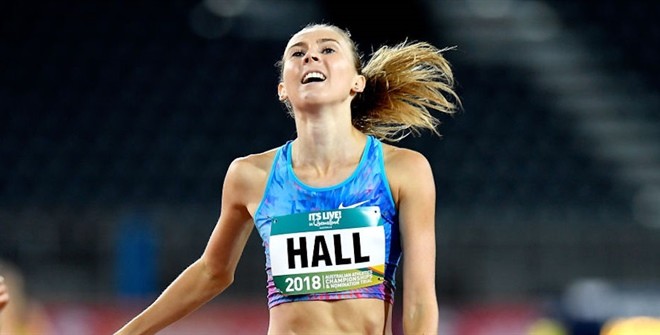
Riseley joins previously selected Tokyo 2020 teammates Dani Stevens and Lisa Weightman in equalling the most Olympics by Australian athletics representatives.
Dane Bird-Smith is joined by Kyle Swan and Declan Tingay in the 20km race walk, five years after he claimed bronze in Rio.
Nicola McDermott, who improved her Oceania record to 2.01m in Stockholm, is joined in the high jump by Eleanor Patterson, while Linden Hall, Jessica Hull, Ollie Hoare and Stewart McSweyn are among the 1500m team members.
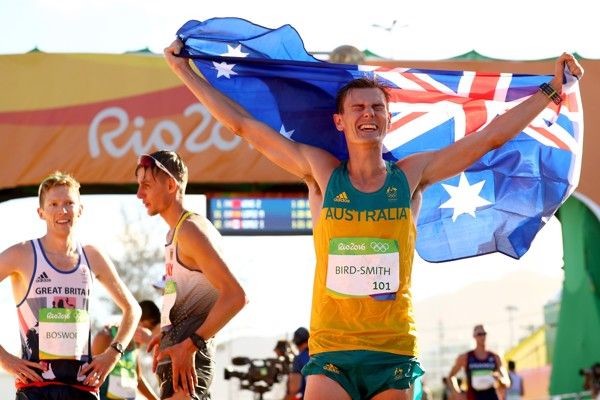
Patrick Tiernan is set to double in the 5000m and 10,000m.
Australian team for Tokyo
WOMEN
100m: Hana Basic200m: Riley Day400m: Bendere Oboya800m: Catriona Bisset, Morgan Mitchell1500m: Georgia Griffith, Linden Hall, Jessica Hull5000m: Isobel Batt-Doyle, Jenny Blundell, Rose DaviesMarathon: Sinead Diver, Ellie Pashley, Lisa Weightman3000m steeplechase: Amy Cashin, Genevieve Gregson, Georgia Winkcup
100m hurdles: Liz Clay400m hurdles: Sarah CarliHigh jump: Nicola McDermott, Eleanor PattersonPole vault: Nina Kennedy, Elizaveta ParnovaLong jump: Brooke StrattonDiscus: Dani StevensJavelin: Kelsey-Lee Barber, Mackenzie Little, Kathryn Mitchell20km race walk: Katie Hayward, Bec Henderson, Jemima Montag4x400m: Ellie Beer, Angeline Blackburn, Kendra Hubbard, Bendere Oboya, Anneliese Rubie-Renshaw
MEN
100m: Rohan Browning400m: Alex Beck, Steven Solomon800m: Peter Bol, Charlie Hunter, Jeff Riseley1500m: Jye Edwards, Ollie Hoare, Stewart McSweyn5000m: Morgan McDonald, Dave McNeill, Patrick Tiernan10,000m: Patrick TiernanMarathon: Liam Adams, Jack Rayner, Brett Robinson3000m steeplechase: Ben Buckingham, Matthew Clarke, Edward Trippas
110m hurdles: Nick HoughHigh jump: Brandon StarcPole vault: Kurtis MarschallLong jump: Henry FrayneDiscus: Matthew Denny20km race walk: Dane Bird-Smith, Kyle Swan, Declan Tingay50km race walk: Rhydian Cowley
Decathlon: Cedric Dubler, Ashley Moloney
by World Athletics
Login to leave a comment
Tokyo 2020 Olympic Games
Fifty-six years after having organized the Olympic Games, the Japanese capital will be hosting a Summer edition for the second time, originally scheduled from July 24 to August 9, 2020, the games were postponed due to coronavirus outbreak, the postponed Tokyo Olympics will be held from July 23 to August 8 in 2021, according to the International Olympic Committee decision. ...
more...

